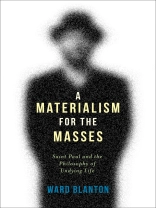Nietzsche and Freud saw Christianity as metaphysical escapism, with Nietzsche calling the religion a ‘Platonism for the masses’ and faulting Paul the apostle for negating more immanent, material modes of thought and political solidarity. Integrating this debate with the philosophies of difference espoused by Gilles Deleuze, Michel Foucault, Jacques Derrida, Jacques Lacan, and Pier Paolo Pasolini, Ward Blanton argues that genealogical interventions into the political economies of Western cultural memory do not go far enough in relation to the imagined founder of Christianity.
Blanton challenges the idea of Paulinism as a pop Platonic worldview or form of social control. He unearths in Pauline legacies otherwise repressed resources for new materialist spiritualities and new forms of radical political solidarity, liberating ‘religion’ from inherited interpretive assumptions so philosophical thought can manifest in risky, radical freedom.
Mục lục
Preface to Politics as Materialist Spiritualities: For a Postsecular ‘Return’ of Paulinism
Platonism for the Masses: On the Sacred Cement Shoes of Paul the Apostle
1. Contingency; or, Covenantal Comedy: In Praise of Strange Paulinist Federations
2. On Being Called Dead: Splitting the Imperative of Being
3. Insurrectionist Risk (Paul Among the Parrhesiasts)
4. Singularity; or, Spiritual Exercise (Paul and the Philosophical Immanence of Foucault and Deleuze)
5. Seizures of Chance: Paulinist Agencies in Neocapitalist Contexts
Conclusion: New Beginnings
Notes
Index
Giới thiệu về tác giả
Ward Blanton is reader in biblical cultures and European thought at the University of Kent in Canterbury.







![Bìa của Brian Schrag & Julisa Rowe: Community Arts for God's Purposes [Chinese] 貼近神心意的社群藝術 Bìa của Brian Schrag & Julisa Rowe: Community Arts for God's Purposes [Chinese] 貼近神心意的社群藝術](https://static.worldofdigitals.com/thumb_webp/740/9781645083740.webp)




